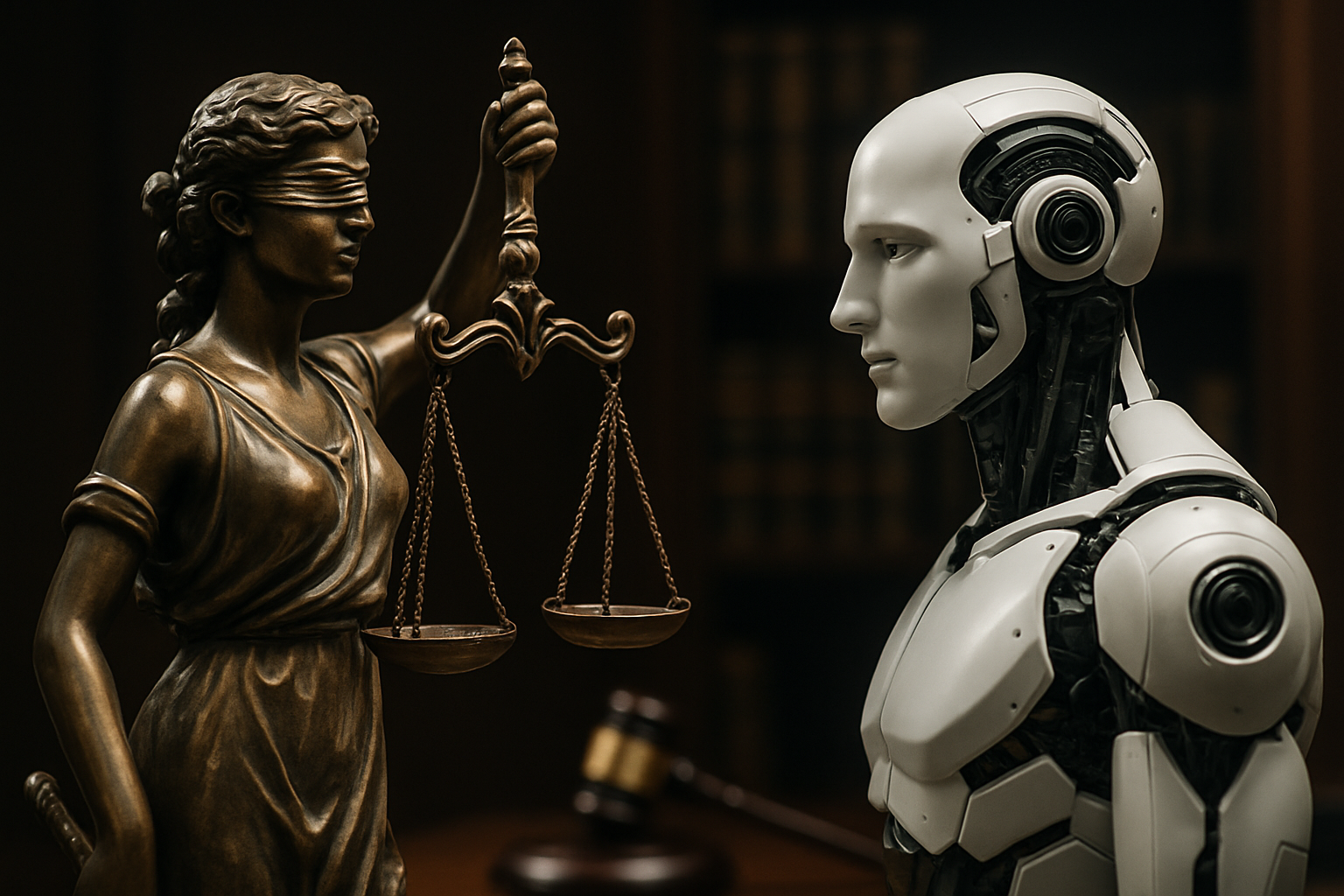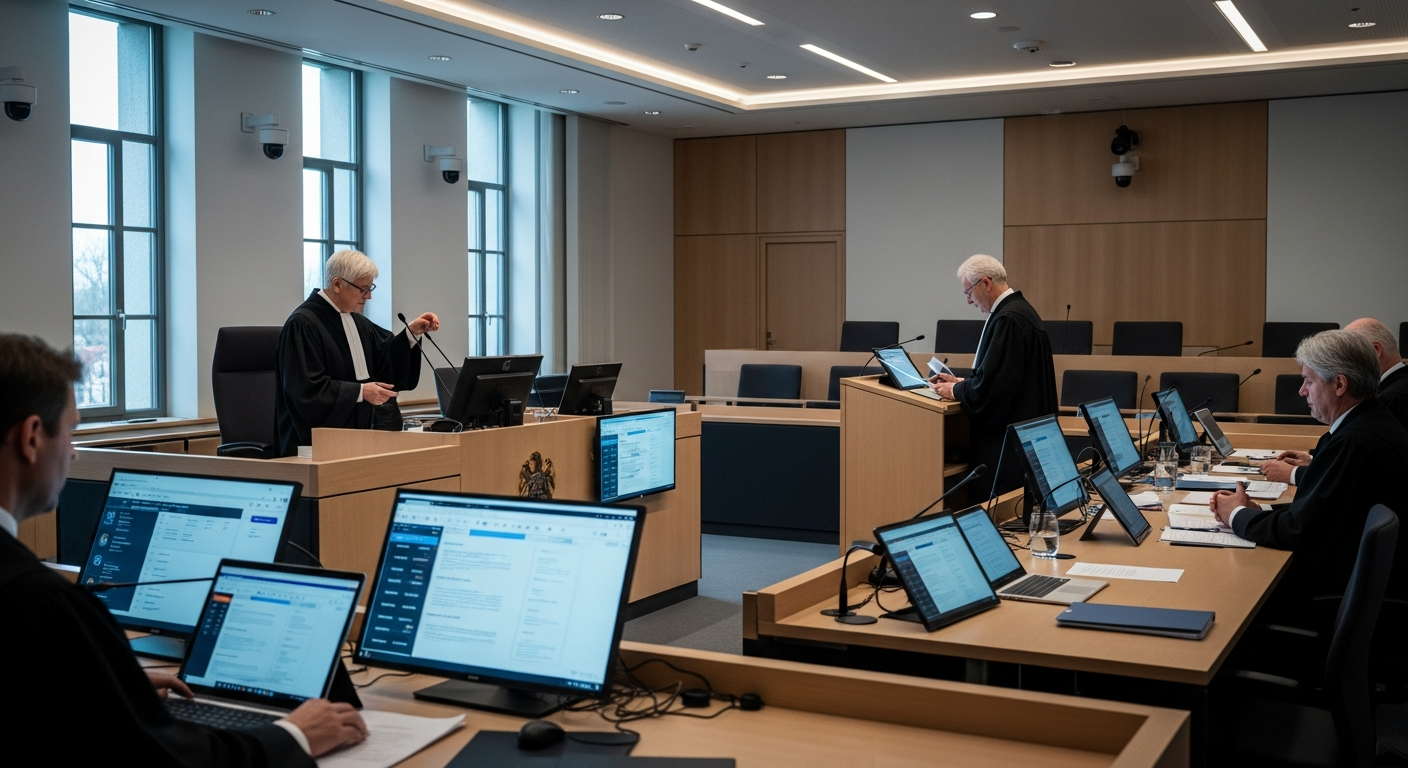Title: Algorithmic Bias in Legal AI: Reshaping Justice
Introduction: In an era where artificial intelligence is reshaping the legal landscape, a new challenge emerges: algorithmic bias in legal AI systems. This cutting-edge issue sits at the intersection of technology, law, and ethics, raising profound questions about fairness, accountability, and the future of justice. As legal professionals and policymakers grapple with this complex problem, the need for innovative solutions becomes increasingly urgent.

Understanding Algorithmic Bias
Algorithmic bias refers to systematic errors in AI systems that can lead to unfair outcomes. In the legal context, this bias can manifest in various ways, from skewed risk assessment tools to biased language processing in legal document analysis. The root causes of such bias are often traced back to the data used to train these AI systems, which may reflect historical prejudices and societal inequalities. For instance, if an AI system is trained on historical sentencing data that reflects racial disparities, it may perpetuate these biases in its recommendations, leading to unfair outcomes for certain demographic groups.
Legal Implications and Challenges
The introduction of potentially biased AI systems into legal processes raises significant constitutional and ethical concerns. It challenges fundamental principles of due process, equal protection under the law, and the right to a fair trial. Courts and legal scholars are now grappling with questions about the admissibility of AI-generated evidence and the transparency of algorithmic decision-making processes. The opacity of many AI systems, often protected as trade secrets, further complicates efforts to scrutinize and challenge their outputs in legal proceedings.
Regulatory Responses and Policy Initiatives
Governments and legal bodies around the world are beginning to respond to the challenges posed by algorithmic bias in legal AI. In the United States, several states have passed legislation requiring algorithmic impact assessments for AI systems used in government decision-making, including those in the legal sector. The European Union’s proposed AI Act includes specific provisions addressing high-risk AI applications in law enforcement and the administration of justice. These regulatory efforts aim to ensure transparency, accountability, and fairness in the deployment of AI in legal systems.
Strategies for Mitigating Bias
Addressing algorithmic bias in legal AI requires a multifaceted approach. One key strategy involves improving the diversity and quality of data used to train AI systems, ensuring they reflect a more balanced and representative sample of legal outcomes. Another approach focuses on enhancing the interpretability and explainability of AI algorithms, allowing for greater scrutiny and challenge of their decisions. Additionally, incorporating human oversight and review processes can help catch and correct biased outputs before they impact legal decisions.
Ethical Considerations and Professional Responsibility
The rise of AI in legal systems also raises important questions about the ethical responsibilities of legal professionals. Lawyers, judges, and other stakeholders in the justice system must develop new competencies to effectively understand, use, and challenge AI-powered tools. Legal ethics codes are being updated to address the use of AI, emphasizing the need for lawyers to maintain their duty of competence and to ensure that AI tools are used in ways that serve the interests of justice.
The Future of AI in Law: Balancing Innovation and Fairness
As we look to the future, the integration of AI into legal systems presents both opportunities and challenges. While AI has the potential to enhance access to justice and improve the efficiency of legal processes, it also risks introducing new forms of bias and inequality. The path forward requires a careful balance between embracing technological innovation and safeguarding the fundamental principles of fairness and equality under the law. This will likely involve ongoing collaboration between legal professionals, technologists, policymakers, and ethicists to develop AI systems that can truly serve the cause of justice for all.






